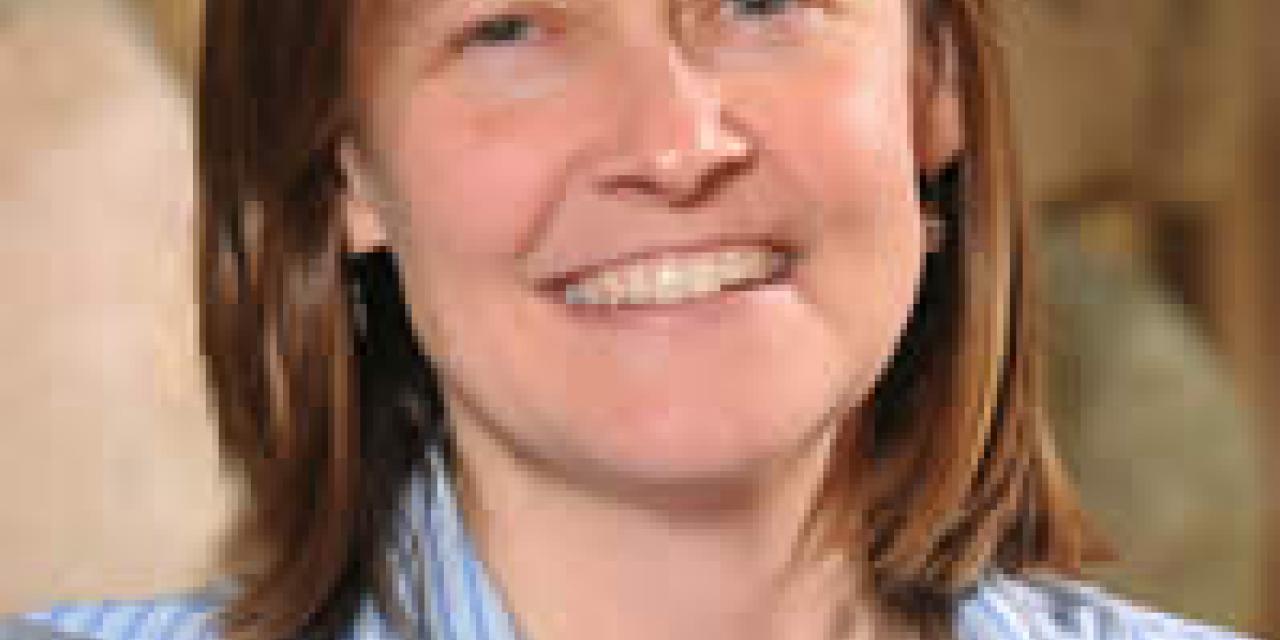Peggy Goetz is a communication arts and sciences professor at Calvin College in Grand Rapids, Mich. She met in March 2014 with Calvin Institute of Christian Worship staff to share her research. In this edited interview, based on that meeting and email conversations, she talks about how churches can better include stroke survivors.
Why did you get interested in how surviving a stroke affects a person’s experience of church and worship?
My research interests moved from the area of child language development to the area of disability studies. Disability studies as an academic field focuses on the social model of disability, which emphasizes changing things politically or socially for people with disabilities. This contrasts with the more typical medical model of disability, which tries to “fix” or get rid of someone’s disability.
I noticed that stroke survivors were not well represented in the field of disability studies, and I began talking with stroke survivors at the Calvin College speech pathology clinic. Many are Christians who said they had been very involved in their church before their strokes, but they no longer go to church. I began to wonder about their church experiences and started going with them to worship services.
How do churches typically get involved when someone has a stroke?
Typically churches are very involved during the initial crisis and rehabilitation. They visit stroke survivors in the hospital, pray, call, send cards or email, and provide food. Most churches are very good at this type of support.
Then why do so many stroke survivors stop going to church?
After the initial crisis, churches are not so good at support. Churches need to be encouraging, but also willing to give people time and space to grieve and heal. Many friends drop off. Often stroke survivors themselves are hesitant to go back to the worship service or other church activities because they know they have changed, or they worry they will get too emotional. Sometimes churches are not open enough to a stroke survivor finding a new way to serve.
What makes worship difficult for stroke survivors?
My students and I have identified so many challenges for stroke survivors in a worship service! Stroke affects each person differently, but survivors often have challenges related to physical movement, socializing, understanding a sermon, paying attention during long services, singing (either because they can’t read or can’t find the tempo or pitch) or participating verbally. Those with “invisible strokes” face social misunderstandings when they appear not to be paying attention or listening. Many stroke survivors go through depression or experience difficult moments of uncontrolled emotion.
What else do stroke survivors say about their church lives?
Stroke survivors with communication disabilities commonly talk about feeling isolated and lacking a sense of purpose. They dislike being told that their new purpose is “to be an inspiration.” Others get told that their disabilities are “a sign of the fall of humanity” or a result of sin or a lack of prayer and faith.
Stroke survivors who were involved in church before the stroke are primarily aware of all they have lost. They may feel they can no longer do anything. But many want to do something to help others. Stroke survivors are often told, “God has kept you alive for a reason. He must have a special plan for you.” But they aren’t often encouraged to look for those places of purpose in their church community. In some churches, though, stroke survivors serve by making coffee, taking prayer requests, helping at food pantries or greeting people.
What do stroke survivors wish churches would do more of?
The main thing is to spend time with them—play cards, go to the beach, have a meal together, visit them at home or meet them for coffee. Those moments when you can just sit and chat and not have any pressure to speak are the best for someone with a communication disability. Before and after church services, it’s very difficult for any real communication to take place, even if you don’t have a speech disability.
The best examples come from churches where people continue to visit and spend time with the stroke survivor even years after the stroke. Individuals hang out with the stroke survivor as a friend even if the conversation is not the same as it was before the stroke. Some churches have small groups or support groups for members with various sorts of disability. These small groups often look for service opportunities for their members. Stroke survivors have extremely different experiences and disabilities, but almost all say they most value people who are positive, patient and good listeners.
|
Learn more about Peggy Goetz’s research on church communities and stroke survivors. She recommends reading these books: Aphasia Inside Out: Reflections on Communication Disability (edited by Susie Parr, Judy Cuchan and Carole Pound) and Dementia: Living in the Memories of God (by John Swinton). |

